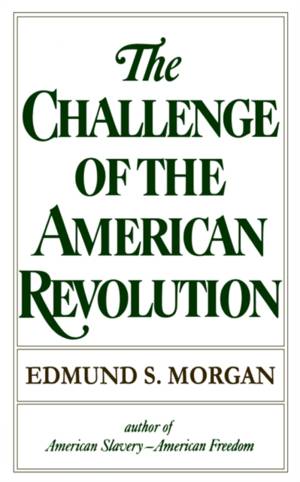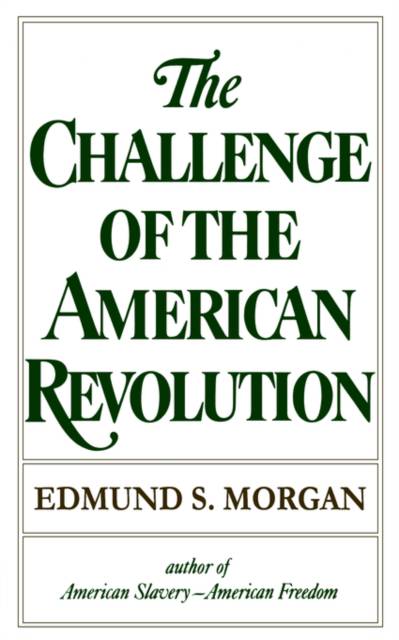
Je cadeautjes zeker op tijd in huis hebben voor de feestdagen? Kom langs in onze winkels en vind het perfecte geschenk!
- Afhalen na 1 uur in een winkel met voorraad
- Gratis thuislevering in België vanaf € 30
- Ruim aanbod met 7 miljoen producten
Je cadeautjes zeker op tijd in huis hebben voor de feestdagen? Kom langs in onze winkels en vind het perfecte geschenk!
- Afhalen na 1 uur in een winkel met voorraad
- Gratis thuislevering in België vanaf € 30
- Ruim aanbod met 7 miljoen producten
Zoeken
Omschrijving
The Revolution is fertile ground for the historian's craft, as these essays attest. Edmund S. Morgan discovers in American protests against British taxation an affirmation of rights that the colonists adhered to with surprising consistency, and that guided them ultimately to independence. Then, after a general reassessment of the importance of the Revolution, he moves to a study of it as an intellectual movement, which challenged the best minds of the period to transform their political world. Next, in studying the ethical basis of the Revolution, Morgan traces the shaping of national consciousness by puritanical attitudes toward work and leisure. This leads him to an exploration of the paradoxical relationship between slavery and freedom, and the role their relationship played in the Revolution. Finally, thinking about the Revolution on its anniversary, Morgan looks once again at the Founding Fathers and the innovative daring, admiring most their ability to reject what had hitherto been taken for granted.
Specificaties
Betrokkenen
- Auteur(s):
- Uitgeverij:
Inhoud
- Aantal bladzijden:
- 240
- Taal:
- Engels
Eigenschappen
- Productcode (EAN):
- 9780393008760
- Verschijningsdatum:
- 12/12/1972
- Uitvoering:
- Paperback
- Formaat:
- Trade paperback (VS)
- Afmetingen:
- 127 mm x 203 mm
- Gewicht:
- 272 g

Alleen bij Standaard Boekhandel
+ 64 punten op je klantenkaart van Standaard Boekhandel
Beoordelingen
We publiceren alleen reviews die voldoen aan de voorwaarden voor reviews. Bekijk onze voorwaarden voor reviews.









